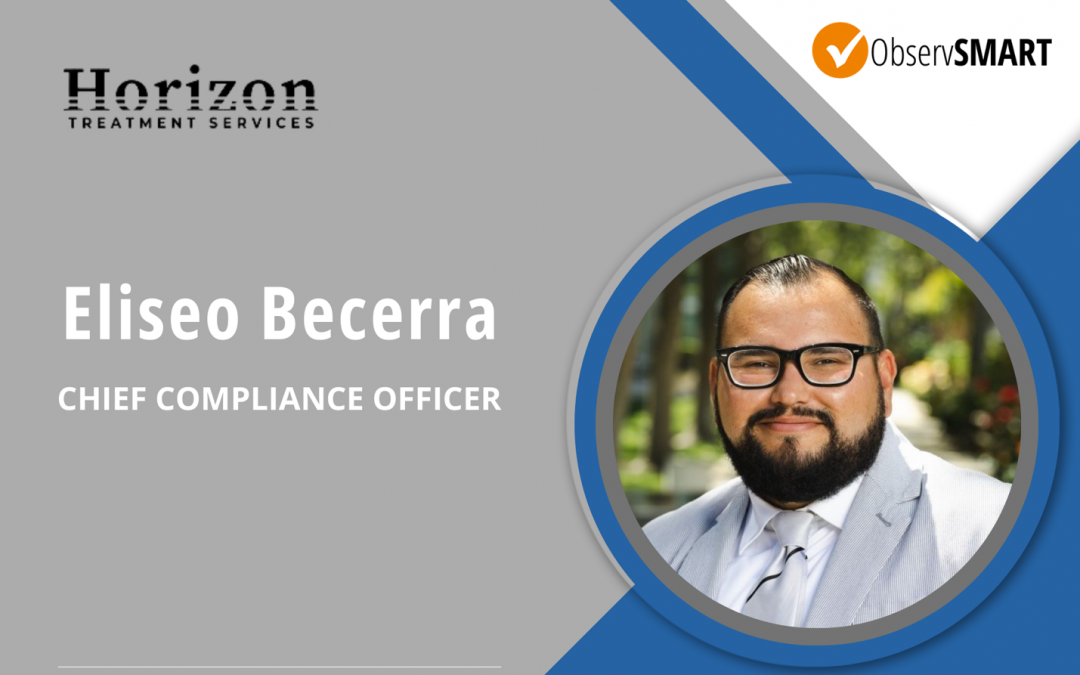Led by Eliseo Becerra, Chief Compliance Officer at Horizon Services Inc.
Abstract:
This paper examines the comprehensive quality improvement initiative undertaken by Horizon Services, a non-profit organization specializing in substance use disorder (SUD) treatment. The transformation process, set into motion over two years due to the organizational shift to improved quality standards, highlights the efficacy of systematic improvements in fostering patient safety and overall care quality.
Introduction:
Substance use disorders (SUD) have become increasingly prevalent, presenting healthcare providers with many intricate and multidimensional cases. According to the National Center for Drug Abuse Statistics (NCDAS) 3.8% of adults have a substance use disorder and a Mental Health Diagnosis. 1 With five decades of experience treating SUD, Horizon Services initiated a systematic reform in response to the increase in comorbidities that emphasized the urgent need for improved patient care and safety protocols. This paper chronicles the organization’s transformational journey and highlights the strategies to enhance safety, quality of care, and regulatory compliance.
Background and Need for Improvement:
Regulatory standards necessitate rigorous patient monitoring and documentation, a requirement that Horizon Services initially sought to meet through manual tracking logs. The Department of Healthcare Services (DHCS) in 2020 initiated a large regulatory change for agencies like Horizon Services that required meeting guidelines for patient monitoring in a detoxification setting. DHCS clearly outlined the need for 30-minute observations to be completed and physical checks must be incorporated into clinic settings. 2 However, despite these efforts, the organization encountered considerable opportunities due in structured guidelines, mandatory training, internal controls, and the need for more formal policies.

Methodology and Implementation:
In response to the evolving market and industry of SUD, Horizon Services revamped their governance and patient care practices under new leadership. The formation of a dedicated Compliance Department signaled a critical shift in the organization’s approach to ensuring regulatory adherence, improved patient care, and mitigating costly costs due to settlements from legal endeavors that may arise. A multifaceted intervention strategy was devised and implemented, involving the recruitment of onsite Quality Assurance (QA) Managers for each clinic, mandatory annual training for all employees, integration of a Learning Management System (LMS) for automation and consistency in training, the incorporation of a technologically advanced patient monitoring system, and the institution of mandatory monthly clinic review meetings.
Patient Monitoring Technology:
Addressing the deficiencies in patient monitoring, Horizon Services transitioned from a traditional manual log system to the more advanced ObservSMART technology. The Bluetooth-enabled system provides real-time patient data, ensuring closer adherence to monitoring protocols. Furthermore, the system’s user-friendly dashboards facilitated more efficient compliance reviews and timely intervention. The ObservSMART system integrates built-in parameters to ensure staff are within 3 feet of the patient to access the patient record and document the observation. The provider now could easily monitor live data and be alerted to adverse occurrences.
Training and Policy Development:
The Compliance Department introduced a comprehensive master policy for all staff, underpinning the organization’s commitment to stringent regulatory adherence and quality care. Mandatory training sessions were established for all new hires and existing staff to supplement this, ensuring a thorough understanding of their roles and responsibilities. The LMS was employed to automate training assignments and reminders, creating a seamless workflow, and eliminating the chance of oversight. The focus on developing our teams also improved engagement among staff. Teams began focusing more on quality. Employee investment in any business strengthens the organization and builds a more resilient healthcare system.
Quality Assurance and Auditing:
Onsite QA Managers were appointed to oversee the risk management processes and ensure adherence to all regulatory and contractual requirements. Monthly audits were initiated to review adherence to these requirements, fostering an environment of constant vigilance and improvement. With ObservSMART the QA managers had an easy way to audit for anomalies in observations as well as were able to respond to system alerts.
Results and Outcomes:
The transformation in Horizon Services resulted in substantial improvements in patient safety and overall care quality. The blend of innovative technology from ObservSMART and stringent oversight practices fostered a culture of responsibility and accountability among staff members. Furthermore, the institution of review meetings and ongoing policy review allowed for continual adaptation and improvement of care standards. ObservSMART allowed for real time data and alerts to ensure all patients were monitored and provided the quality care they deserve.
Discussion:
The implemented changes addressed immediate organizational needs and established a platform for continuous improvement and learning. The adoption of ObservSMART technology marked a significant improvement in patient monitoring, resulting in improved patient safety. Mandatory training ensured staff proficiency, while regular audits encouraged adherence to protocols and timely identification of potential issues. These initiatives led to a considerable cultural shift, positioning quality of care and patient safety as the foundation of all organizational activities.
Conclusion:
Horizon Services’ transformation underscores the significance of proactive approaches to patient safety, quality care, and regulatory compliance in SUD treatment. The organization successfully navigated a challenging period and used it as an opportunity to revolutionize its patient care and safety practices. As other SUD providers have begun to adopt similar practices, the transformation at Horizon Services represents a catalyst for wider sectoral improvements.
1 DrugAbuseStatistics.org. (n.d.). Home – Drug Abuse Statistics. Retrieved July 16, 2023, from https://drugabusestatistics.org/
2 California Department of Health Care Services. (2020). Alcohol and/or Other Drug Program Certification Standards. https://www.dhcs.ca.gov/Documents/DHCS-AOD-Certification-Standards-2.7.2020.pdf

